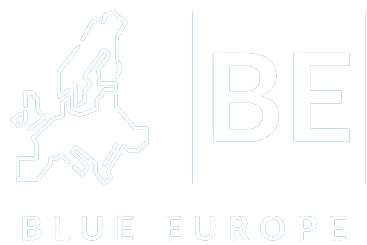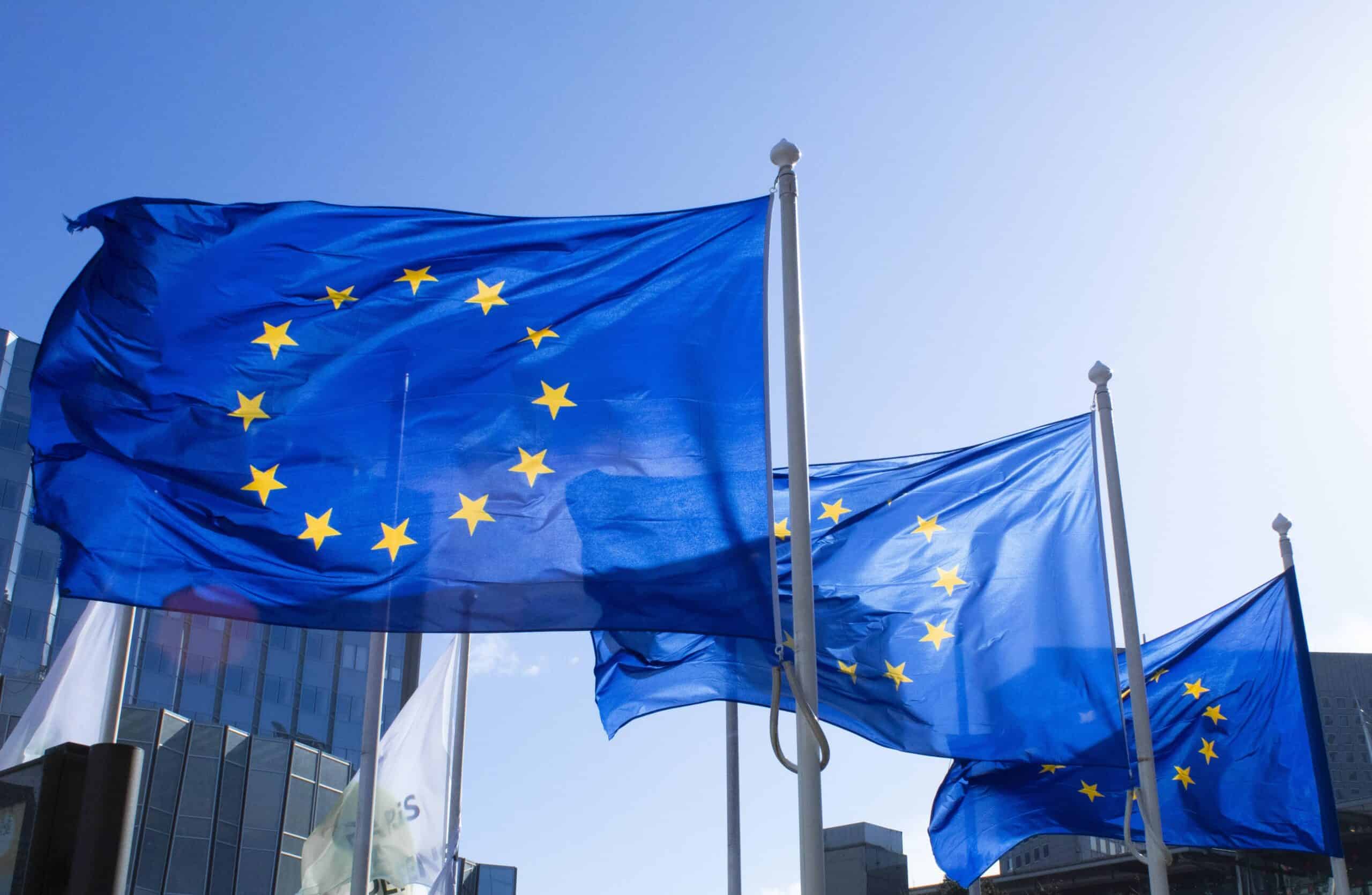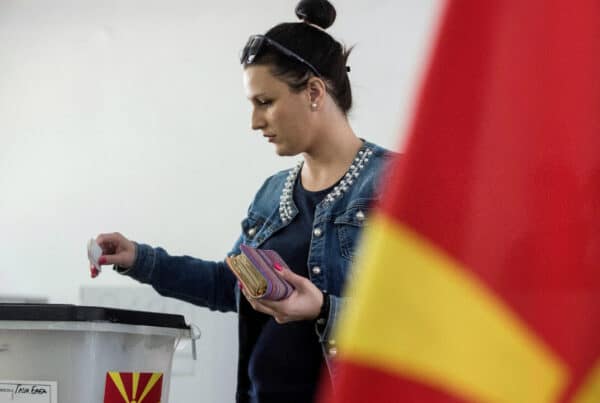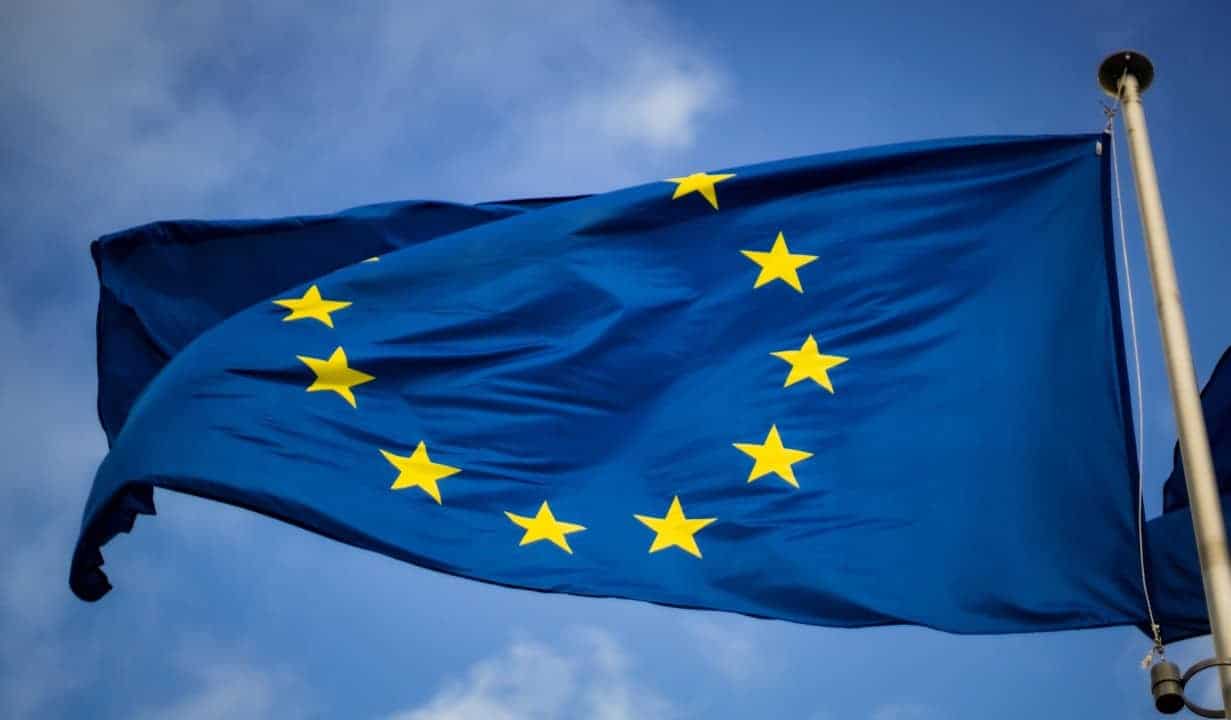Blue Europe, a think tank focused on fostering connections between Western, Central and Eastern Europe, is pleased to announce the 2024-2025 “Denis de Rougemont” contest. This year’s competition honours Denis de Rougemont (1906-1985) [1], a Swiss writer, cultural theorist, and thinker who was a pivotal advocate for European unity and integration, promoting a vision of Europe grounded in cultural diversity, shared values, and federal cooperation. His work Le Paysan du Danube, through the fictional journey of a peasant from the Danube region who travels across Europe, explores the continent’s rich diversity of languages, traditions, and identities while highlighting the common values that bind Europeans together. Le Paysan du Danube serves as an important reminder that true European unity can only be achieved by valuing both shared heritage and cultural diversity, promoting dialogue and cooperation between the West and East.
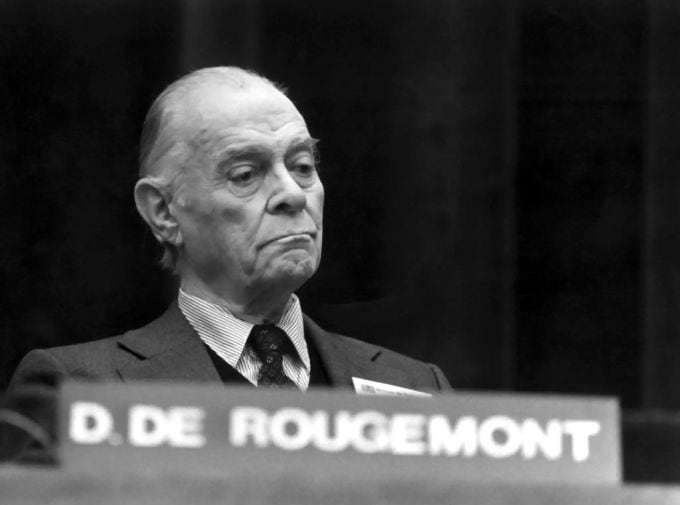
Denis de Rougemont in 1985
Objective
In the spirit of de Rougemont’s legacy, the contest aims to encourage scholarly exchanges and deepen understanding between Western and Central-Eastern Europe (CEE). This contest is open to all EU/EEA Bachelor, Master and Doctoral students [2], as well as recent graduates who obtained their degree in 2024.
We invite scholars from Western Europe to submit articles that explore the dynamic relationships between European regions – particularly with CEE – focusing on industrial, technological, political, or cultural exchanges. Scholars from Central and Eastern Europe are encouraged to write about any aspect of CEE itself, reflecting on its unique identity, challenges, and contributions to the broader European project. Selected works will be featured on Blue Europe’s website, contributing to our mission of enhancing public awareness of European issues and fostering dialogue and cooperation across the continent. We believe it is a great opportunity for scholars and young researchers to showcase their knowledge and increase their visibility.
Award
Authors of papers that are successfully accepted into the competition will receive a certificate of participation, which will include the evaluation of their work. As mentioned above, selected papers will also be published on the Blue Europe website and will be eligible for a cash prize. This year, we are offering two cash prizes to the authors of the two best articles that receive the highest marks from the jury. We will award:
- A prize of 1000€ for the article with the highest score from the jury;
- A prize of 500€ for the article with the second highest score from the judges.
Articles will be evaluated by a panel of experts based on originality, clarity, depth of analysis, and relevance to the theme of the contest and the mission of Blue Europe.
Please make sure you read the full rules here.
Conditions
As mentioned before, this contest is open to all EU/EEA Bachelor, Master, and Doctoral students, as well as recent graduates who obtained their degree in 2024. Proof of academic enrolment is required. While not compulsory, scholars from Western Europe are still invited to write about European relations focusing on CEE, while scholars from Central and Eastern Europe are encouraged to engage specific topics related to CEE.
Individuals may submit more than one paper to the competition, but only one will be eligible to be promoted to the final round. Submissions must be original, unpublished works that have not been submitted to other competitions or journals. Authors must ensure their submissions do not infringe on the intellectual property rights of any third party.
Contributions must have a minimum of 3,000 words and a maximum of 30,000 words. To be admitted to the contest and be eligible for the award, the submission must be presented in either English, French or Polish. Nevertheless, to have the paper published on the website, an English version is required. All contributions must also adhere to a formal academic style, with proper citations and references according to the Chicago Manual of Style (both Author-Date and Note-Bibliography stiles are accepted).
Original articles may be submitted on any subject among the following areas: Economy and Trade, Industry and Business, Literature and Cultural Studies, Political Science and Governance, International Relations, Sociology, Law and Human Rights, Environmental Studies and Climate Policy, Innovation and Technology, Energy and Sustainability, Education and Research Collaboration, Migration and Demographic Studies, Public Policy and Administration, Regional Development and Urban Planning, Security Studies and Geopolitics. Nevertheless, contributions must deal with – at least partially – Central and Eastern Europe [3].
For more information, make sure to check the full rules here.
Dates and Registration
Key deadlines for Blue Europe 2024-2025 Denis de Rougemont contest include:
- 01/09/2024 Contest beginning
- 31/03/2025 NEW DEADLINE FOR ABSTRACT SUBMISSION
- 31/05/2025 Deadline for article submission
- 30/06/2025 Notification of acceptance
- 31/08/2025 Winners’ announcement
To register, send an email to contest24@blue-europe.eu with “Registration for 2024-2025 competition” in the subject line, including a brief 250-500 word abstract and a provisional title for your paper, a brief 150–word biography, and proof of academic enrolment/recent degree.
Disclosure
Blue Europe is an independent, non-profit and privately funded think tank based in Luxembourg, France and Poland made up of several organization and experts working together. It has no political stance and refuses to take any, preferring to offer data-driven expert opinions and analyses.
Endnotes
- Denis de Rougemont (1906-1985) was a Swiss writer, philosopher, and cultural theorist who is best known for his pioneering work on European federalism and his vision for a united Europe. Born on September 8, 1906, in Couvet, Switzerland, he studied in Geneva and became actively involved in intellectual circles across Europe, particularly in Paris during the 1930s. De Rougemont was part of the “Personalist” movement, advocating for a philosophy that emphasized the dignity of the person against authoritarian ideologies. During World War II, he moved to the United States, where he continued to write and lecture on European cultural identity and federalism. After the war, he became a central figure in the Europeanist movements, notably co-founding the European Cultural Centre in Geneva in 1950 and promoting the idea of a federal Europe to safeguard peace and democracy on the continent. De Rougemont’s influential works, including L’Europe en jeu (1954) and The Idea of Europe (1961), argued for a Europe united not just politically or economically but culturally and spiritually, recognizing its diversity. He was also involved in creating the Congress of Europe in The Hague in 1948, a crucial step toward what would eventually become the European Union. Throughout his life, he championed the idea of a decentralized Europe of regions, emphasizing cooperation and cultural exchange. De Rougemont passed away on December 6, 1985, in Geneva, leaving behind a legacy as one of the most important intellectual advocates for European unity and identity in the 20th century. ↑
- The contest is also open to citizens and residents of the United Kingdom, Andorra, Monaco, Vatican City, San Marino, Switzerland, Bosnia and Herzegovina, Serbia, Montenegro, Kosovo, North Macedonia, Albania, Moldova, Ukraine, Belarus, Russia, Georgia, Armenia and Azerbaijan. See the full rules. ↑
- By Central and Eastern Europe, Blue Europe indicates these countries: Estonia, Latvia, Lithuania, Belarus, Poland, Ukraine, Russia, Moldova, Czech Republic, Slovakia, Hungary, Romania, Slovenia, Croatia, Bosnia and Herzegovina, Serbia, Montenegro, Kosovo, North Macedonia, Albania, Bulgaria and Georgia. ↑

